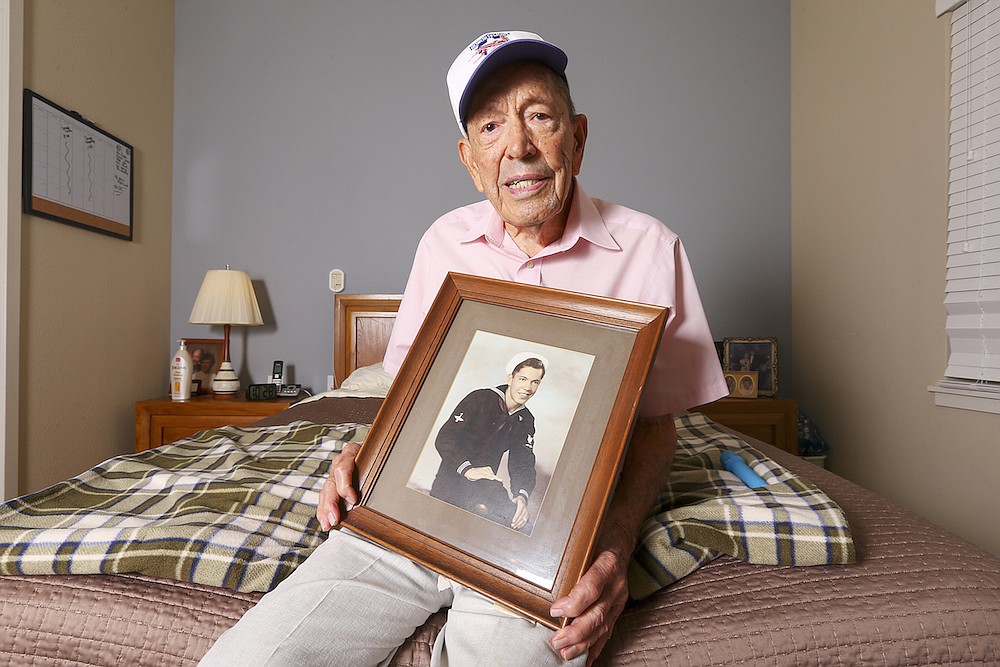- April 4, 2025
-
-
Loading

Loading

His father and older brother had joined the U.S. Navy, so Clyde Jones followed suit, as did his younger brother.
“I was just a little boy in Alabama, and you had to wait for your time to go,” he said.
Years later, he finally was of age.
“The girl in charge of (recruitment) in my town told me to show up, and she said if nobody showed up or didn’t go, I could go, and that’s how I got in.”
Jones served in the Navy Air Corps and later in the Navy Reserves — from 1942 to 1960 — and was stationed in the Pacific Theater of World War II.
But before heading west and overseas, Jones attended boot camp at the newly built U.S. Naval Training Center, Bainbridge, in Maryland.
He attended school for radio and communications, as well as an air gunner’s school. Once on the West Coast and on active duty with a squadron, Jones spent most of his time in the air, he said.
Now 96 and living in Sonata West, in Winter Garden, Jones still has the photo of his patrol squadron from his service on the island of Tinian, in the Mariana Islands. There, his crew of six patrolled and performed combat operations.
“I experienced a lot of diving down and getting shot at; I got shot at a lot,” he said of his excursions to the edge of Japan. “The plane was hit with small-arms fire but didn’t go down. (There were) a lot of close ones.”
Following World War II, Jones returned home to Birmingham, was honorably discharged and signed up for the Navy Reserves. And then the Korean War broke out.
He said he was called up to go to Korea but that assignment was cancelled because there weren’t enough radiomen in the crew to let him go.
After the reserves, Jones moved to Orlando and became a technical writer for Martin Marietta (now Lockheed Martin).
He and his wife, Myra — who passed away about 10 years ago after 61 years of marriage — have two sons: Randy, who lives in St. Cloud, and Donald, of Orlando.
Don accompanied his father on the June 15 Honor Flight, which takes military veterans and a personal guardian on a special one-day trip to Washington, D.C., to visit the war memorials, Arlington Cemetery and the Tomb of the Unknown Soldier. The day is free for veterans.
Jones said the flight and experience were wonderful and well organized — but there was one emotional surprise he wasn’t prepared for.
Don planned for his uncle — Jones’ younger brother, Ray — to meet them at the World War II Memorial. It had been several years since the two brothers last saw each other.
“He walked up and surprised me; it took about two or three seconds to come around to who it was,” Jones said, tearing up but smiling.
The police escorts and cheering crowds made the trip even more special, he said.
“The honor I got when we came back in Orlando about 10 o’clock at night,” he said. “We walked in there (at the airport) and there were people in two lines on both sides, and they shook our hands and hugged us. We had a lot of recognition from the time we left there until the time we got back. The terminal was just lined with people.”
It was an overwhelming experience knowing the citizens were because of the sacrifices he and the other Honor Flight veterans had made all those decades ago.
What do the freedoms enjoyed today mean to Jones?
“There is nothing more important than freedom,” he said. “Freedom is worth sacrifice. … We all get our rights by freedom.”